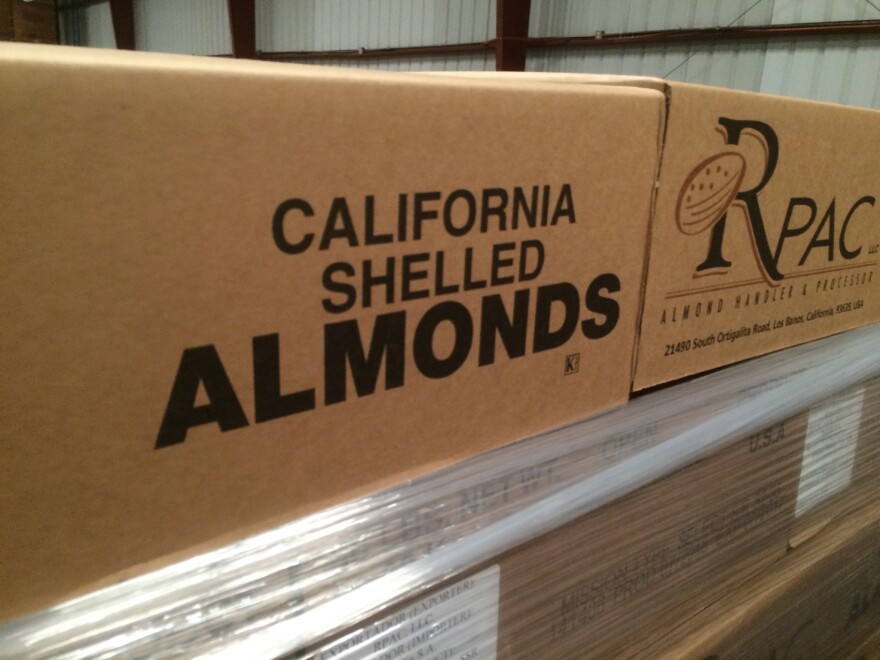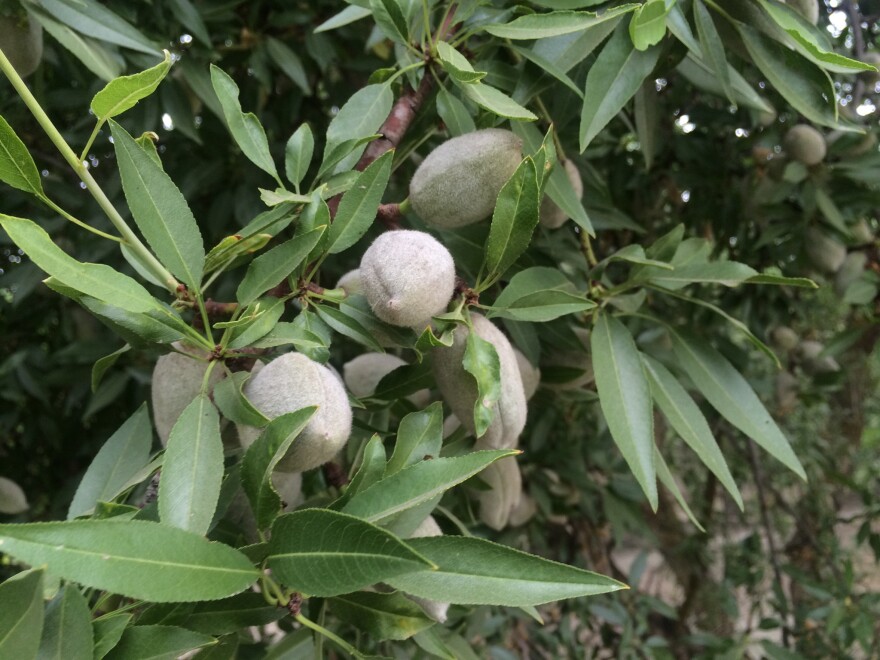Drive anywhere in Central California and you’ll see fields of almonds. Some people wonder if the growth of the almond industry is sustainable. And as FM89’s Ezra David Romero reports the price of the nut just may have met a slippery slope.
Almonds have got a lot of bad press over the last few years. The nut was called out for drinking too much water, while at the same time farmers were making bank on the tree crop. Meanwhile the commodity slowly lost value.
Vernon Crowder is part of a Food and Agribusiness Research Advisory Group with Rabobank in Fresno.
ROMERO: “How far has the price dropped?”
CROWDER: “Probably about 20 percent maybe just a little bit more since late 2014.”

That 20 percent equals a loss of around $1.8 billion. Crowder says the problem is too much supply.
“There have been a lot of new almonds planted over the last three years,” says Crowder. “And that’s probably part of the reason why the crop was a little bigger than we expected this year. And people know there will be more almonds produced this fall as well.”
When the price of almonds rose from $2.50 three years ago to over $4 per pound in 2014, farmers went crazy. Many replaced their lower priced crops like grapes or cotton with fields of almonds. That flooded the market dropping the price to $3 per pound.
The real kicker was the strength of the dollar in 2015. It began to cost more for places like China and India to buy almonds. In turn the Asian market is shelling out less cash for the crop.
“We probably pushed the price up to high,” says Darren Rigg. He handles over 50 million pounds of nuts with Meridian Growers in Tulare, Calif.
"The whole entire industry has dealt with a lot of defaults out of India and Dubai. Guys going out of business, guys not picking up loads and some of them just packing up shop and running off to the Himalayas." - Darren Rigg
“It killed off demand and people at a certain points they just don’t buy,” Rigg says. “We’re probably coming back into an equilibrium point, but we possibly have overcorrected as well.”
He says overreliance on markets with lack of infrastructure and finances are the root cause.
“The whole entire industry has dealt with a lot of defaults out of India and Dubai,” says Rigg. “Guys going out of business, guys not picking up loads and some of them just packing up shop and running off to the Himalayas. And so we still have cargo at foreign ports.”
Even with the decrease growers are still bringing in more than they were making five years ago. Almond growers like Joe Del Bosque in Firebaugh say they haven’t felt the pinch yet.

“Having a couple of good years has given us a good foundation for us to be able to weather this thing,” Del Bosque says.
Although, Del Bosque, who farms over 600 acres of almonds, is worried that the high cost of water coupled with lower price of almonds would decrease profits.
“We’re not panicking,” Del Bosque says. “If the market stays where it is right now I think we’ll still be okay if we have water that isn’t too expensive this coming year.”
But this is all a balancing acts. Adequate chill hours and ample rains brought by El Nino could mean a healthy crop; more almonds in the case could mean less money in farmer’s pockets.
Growers are also worried that rain could knock too many flowers off trees during bloom time resulting in a smaller crop too expensive for foreign bank accounts. Both scenarios could lead to even greater loss, but the growers I spoke with remain optimistic.




